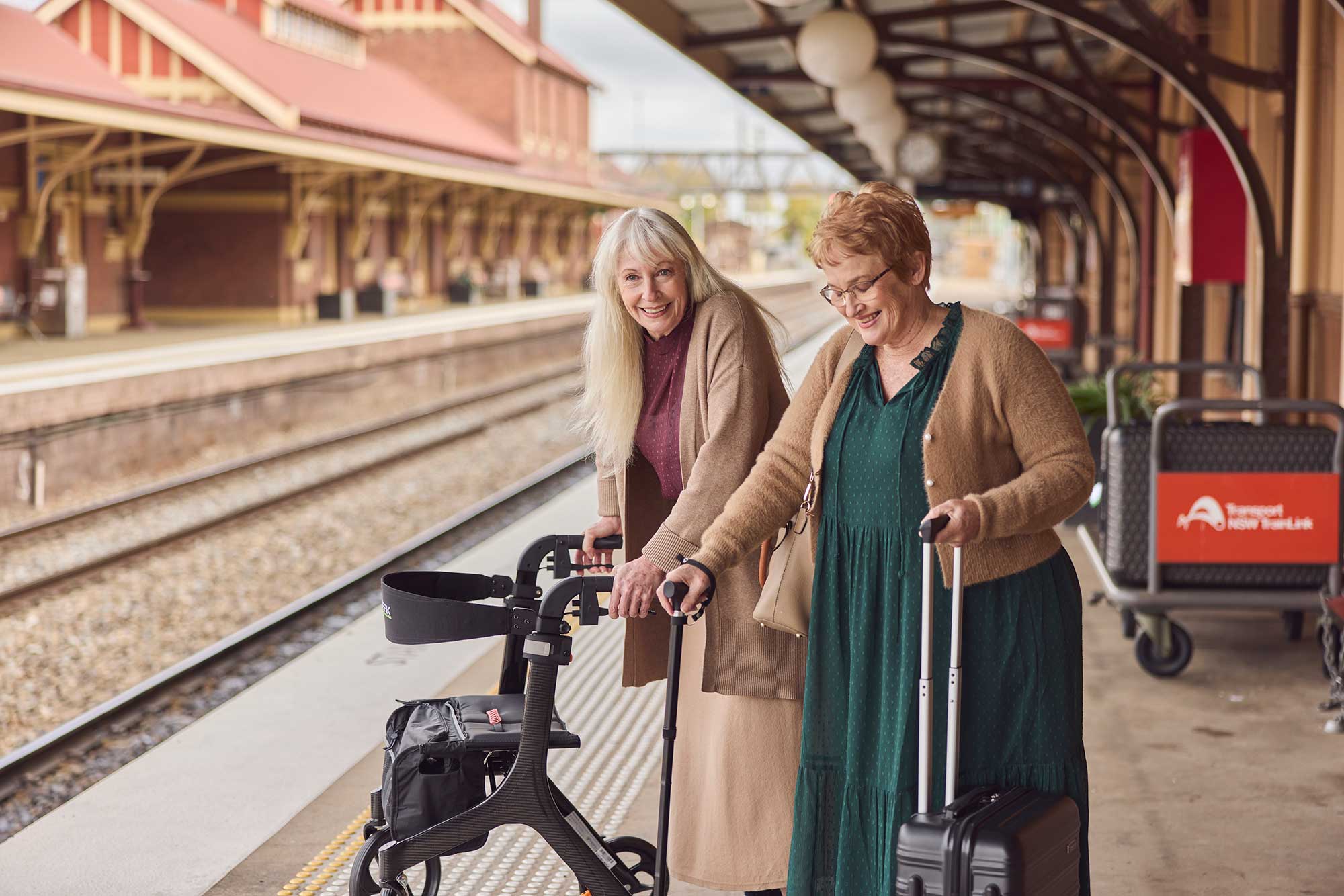Luggage rules
Check your luggage allowance and how to pack before your trip. This guide gives you all the information you need.
Luggage allowance
Your luggage allowance depends on your ticket type and whether you’re travelling by train or coach.
Quick reference
| How you travel | Hand luggage (max. 10kg) | Large luggage (max. 20kg) |
| Coach | 1 | 2 |
| Train Economy | 1 | 1 |
| Train First Class | 1 | 2 |
Travelling on both a coach and train
- If your trip includes a coach and a train, coach luggage rules apply for the entire journey.
Travelling with extra or special items
You can bring extra items if they meet certain rules:
- Bring prams, baby seats, mobility aids and medical equipment in addition to your luggage allowance.
- Musical instruments and sporting gear count towards your luggage allowance.
- You may need to book some items in advance or pay a fee.
- All items must follow size, weight and safety limits.
- Please refer to Other luggage items for more details and conditions.
Size and weight limits
- Large luggage: 60cm high x 70cm long x 50cm wide.
- Hand luggage: 30cm high x 50cm long x 30cm wide.
- No item over 20kg is allowed on any NSW TrainLink service.
- Size measurements must include protruding parts (wheels and handles). Measure the widest points on each side.
- Luggage that does not comply with the luggage policy, including excess luggage, is not permitted.
- Luggage must be packed in a suitcase or a suitable protective travel bag.
Your luggage onboard
To help ensure a safe and comfortable journey for all passengers, please review the following information for luggage when travelling:
Other luggage items
You may be able to bring extra items in addition to your standard luggage allowance, such as a pram, mobility aid or medical equipment. You can also bring items for leisure or work, as long as they meet size, weight and safety requirements. Some items must be pre-booked before you travel.
Special allowances
These items are allowed in addition to your standard luggage.
Mobility aids and wheelchairs

Sporting equipment and musical instruments
You can bring large items as part of your luggage allowance, if it meets safety, weight and size requirements. Some items may require booking and some may incur a booking fee.
Due to limited space on our services, we kindly request that passengers take note of the following travel conditions.
Dangerous goods and prohibited items
Don’t bring dangerous items or anything that could cause a safety risk. Always check before you pack.
Prohibited items
- From Saturday 1 November 2025, lithium batteries used for supplying power to a converted e-bike, whether or not they are attached to a bike.
- Dirty, soiled, or offensive items.
- Inadequately secured luggage (including items packed in plastic bags).
- Polystyrene or wooden boxes (except bicycles in cardboard boxes as specified).
- Lightweight material bags exceeding 15kg (only clothing and soft items allowed).
- Engines, motors, or their parts (including vehicles).
- Sailboards.
- Animals (except approved assistance animals.)
- Household items or appliances.
- Plants or plant matter.
- Perishable food items (including meat, seafood, fruit, and vegetables).
- Unattended bags (your luggage must travel with you).
- Alcohol not purchased on board (BYO alcohol is not permitted).
Possession, use or transport of illegal drugs is strictly prohibited and may result in immediate reporting to law enforcement authorities.
The following items must not be taken on board under any circumstance:
- Compressed gases: Flammable, non-inflammable and poisonous.
- Corrosives: Acids, alkalis, mercury and wet cell batteries.
- Explosives: Munitions, fireworks and flares.
- Flammable liquids and solids: Lighter fuel, matches, paints, thinners and fire-lighters.
- Oxidising materials: Bleaching powder and peroxides.
- Poisons and infectious substances: Insecticides, weed killers and live virus materials.
- Weapons: Firearms, spear guns, crossbows and knives.
- Radioactive materials
NSW DPI has issued an Emergency Order restricting the movement of fire ant carrier materials into NSW from fire ant-infested areas in Queensland.
Damaged or lost luggage
We recommend taking out travel insurance to cover accidental damage or loss.
Frequently asked questions
Questions about luggage and what you can take onboard.
Need additional information?
Contact us for help with further questions or assistance with your travel.